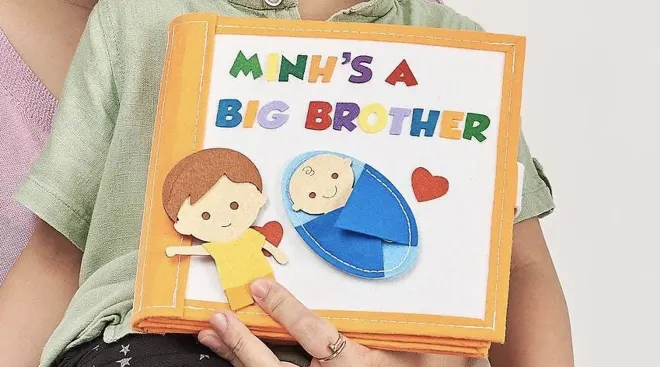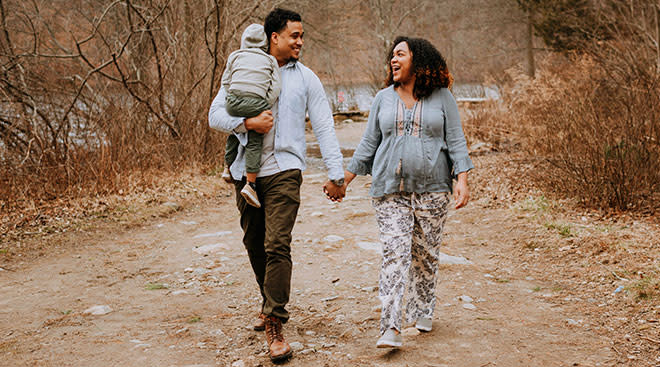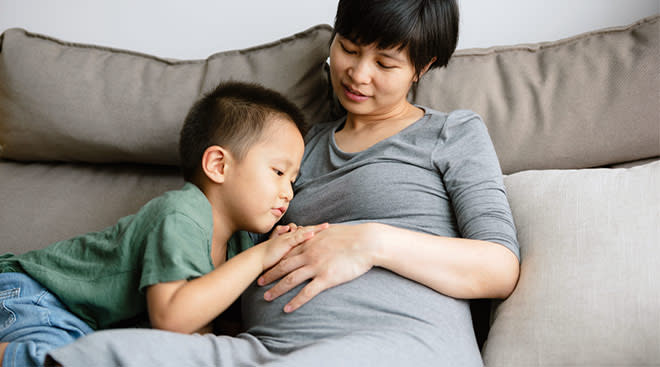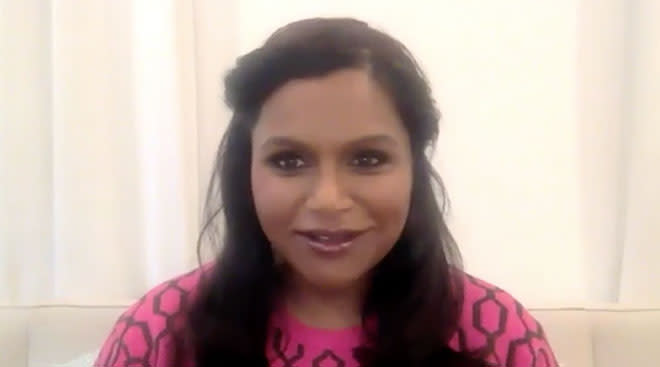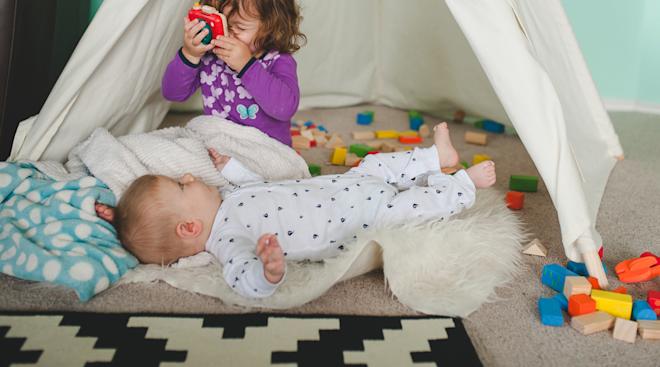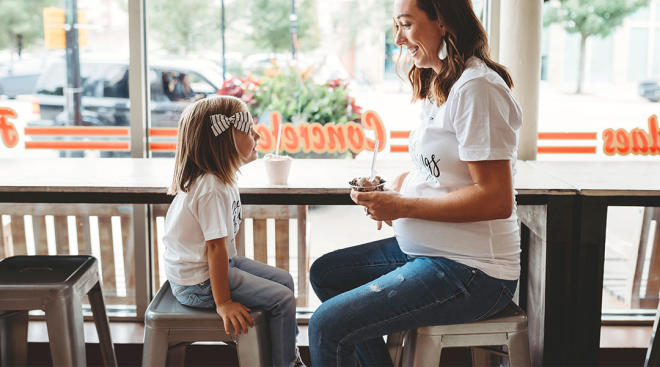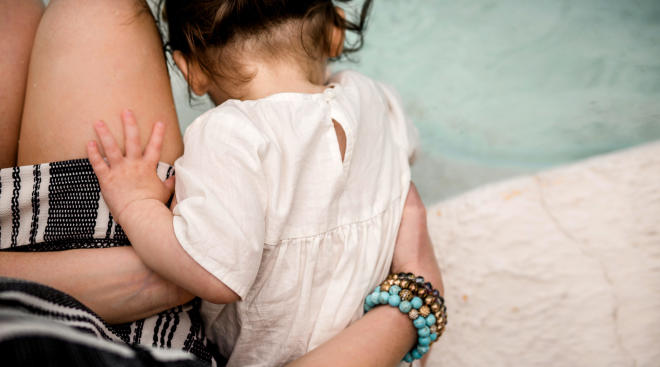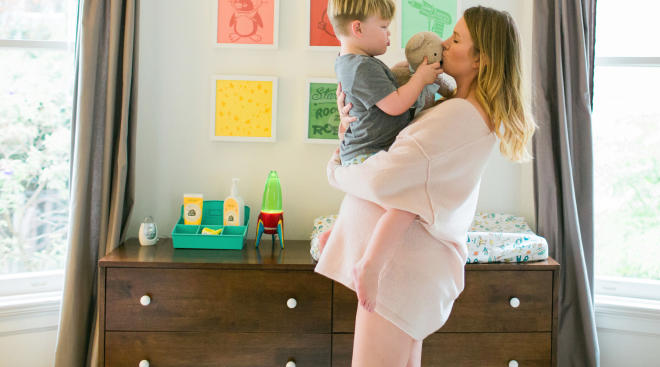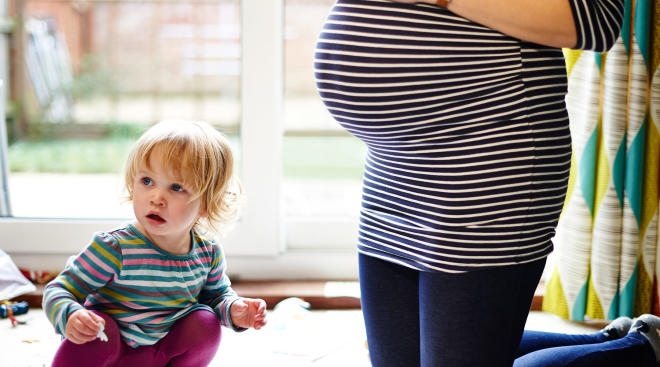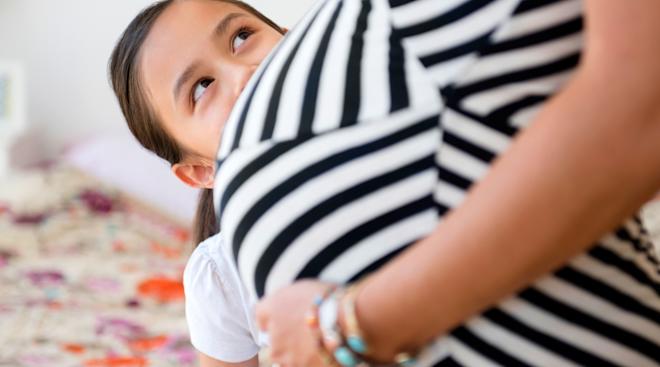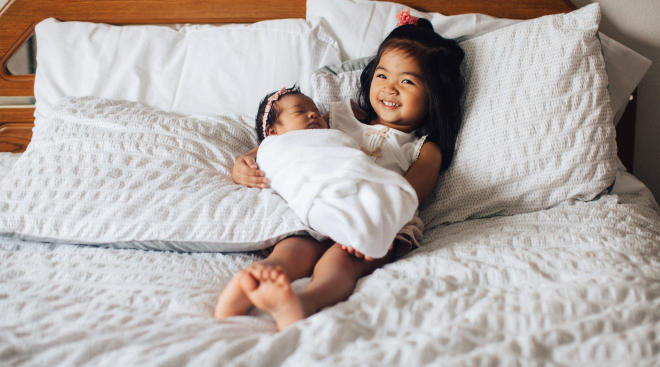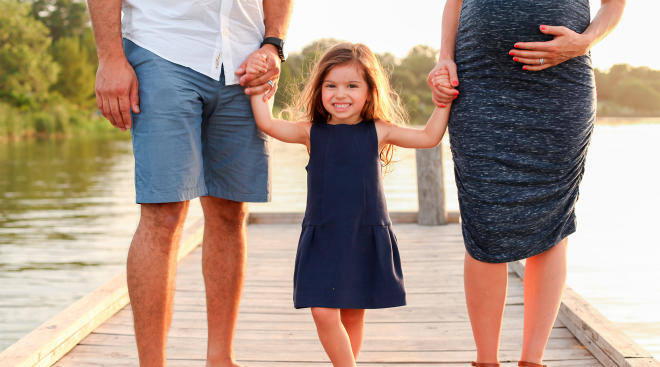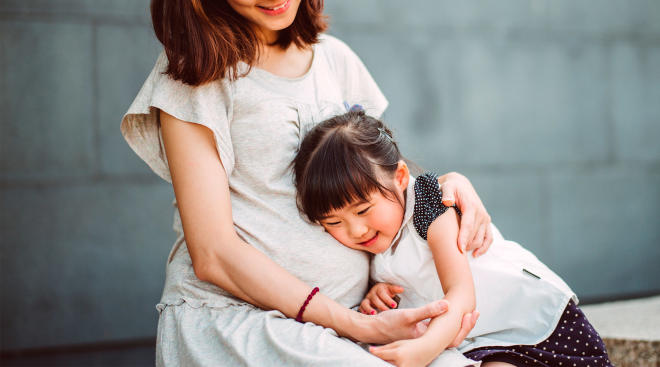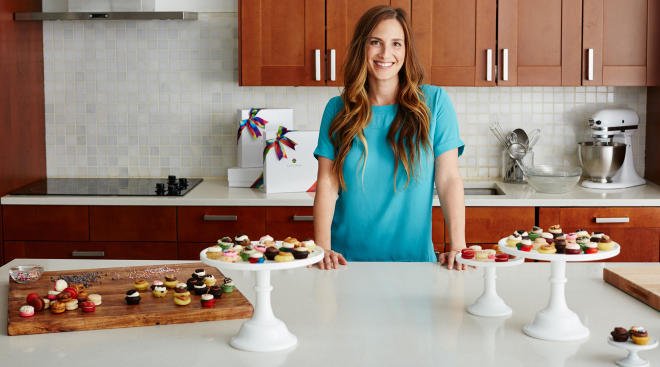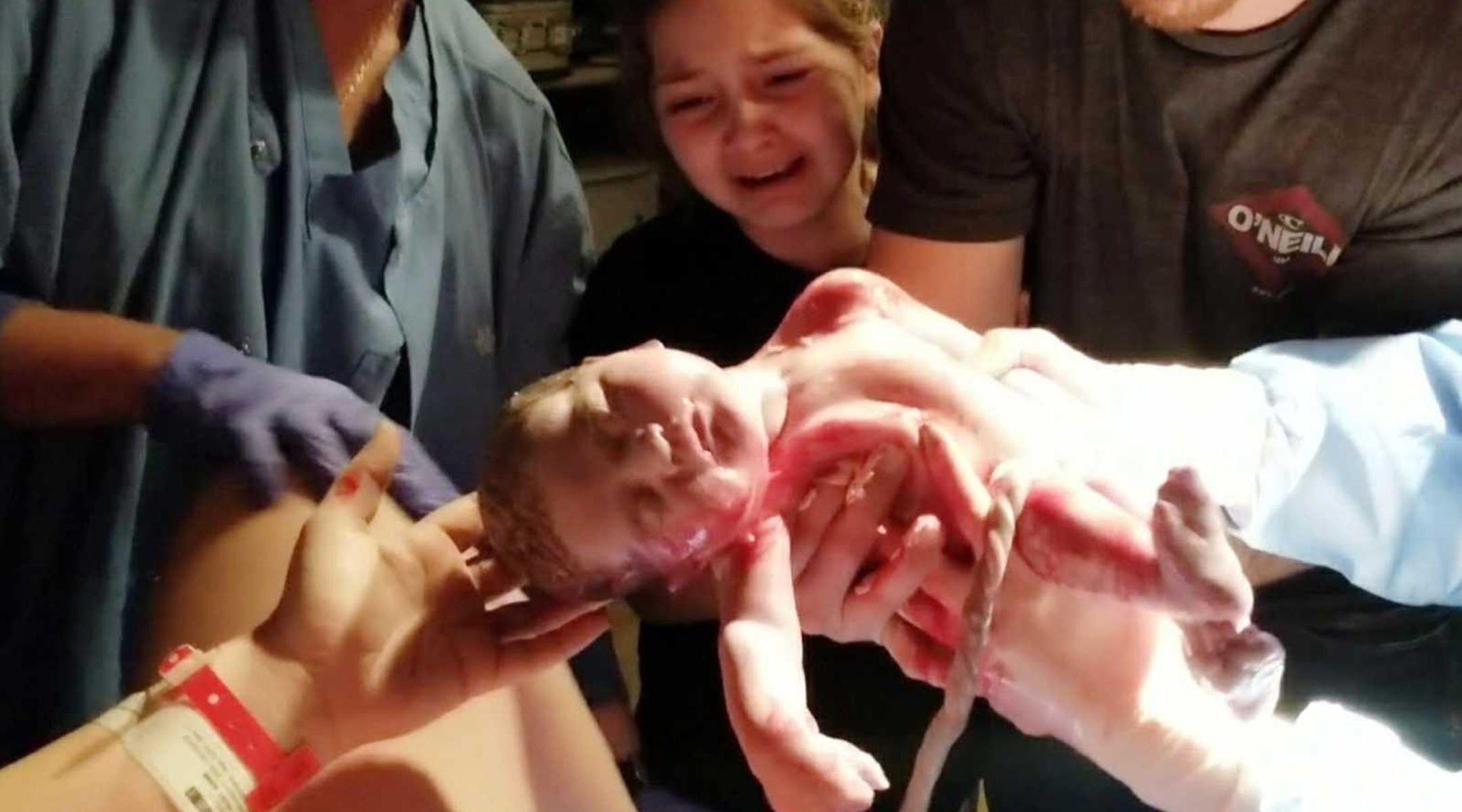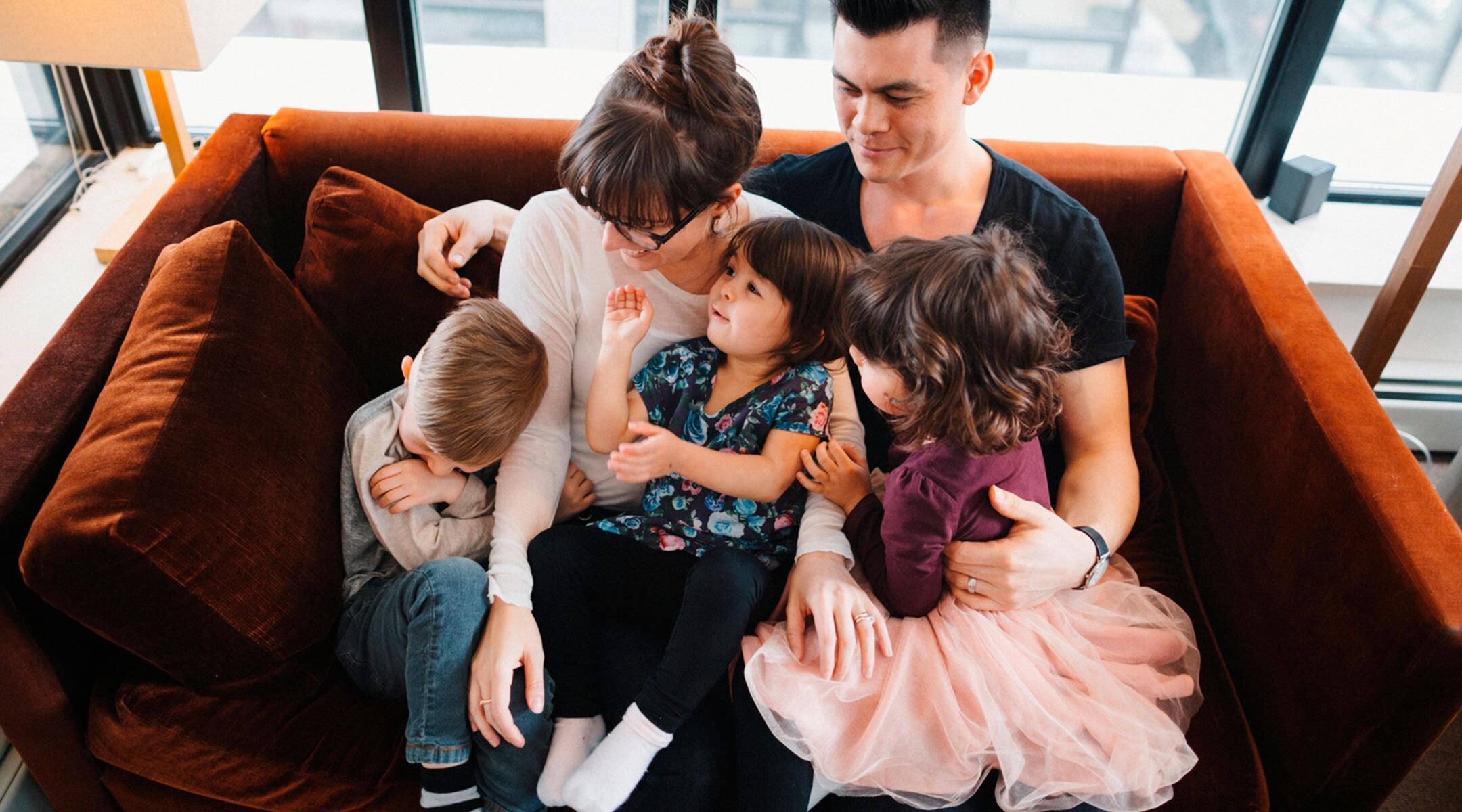Real Parents on Juggling Life With a Newborn and Toddler
When my 2-year-old son started reaching for his baby sister’s hand, I knew there was something incredibly special about life with a newborn and toddler. Even in the postpartum haze, their early interactions were a beautiful privilege to watch. But, behind the scenes, these moments were also a lot of hard work. I wanted to be everything to everyone at the same time, and I quickly learned that this wasn’t going to be possible. The persistent multi-tasking and overthinking was overwhelming in itself—and to think I was doing it all on just a few hours of sleep and a cold cup of coffee!
Mine isn’t an unusual story. In fact, the anxiety around transitioning from one to two (or more) young children is something experts see time and time again. “The hardest thing for me was making sure the older child had equal attention. It’s so easy to get wrapped up in baby and caring for them that I had to remind myself to give my daughter an equal amount of time,” shares Luckylove29, a community member on The Bump.
While this challenge is common, with a bit of preparation, perspective and patience, you can learn to tame (or simply embrace!) the chaos in a way that works for your family. Whether you’re anticipating a new arrival or knee-deep in the trenches with two, we’ve got plenty of tips from experts and real parents to help you power through the early days of juggling life with a newborn and a toddler.
“Having two is harder in some ways and easier in others. The first year with a new baby is hard—and there are always adjustments to make. The good thing with your second though is that you've been through things before and you know what to expect.”
Put yourself in your toddler’s shoes: Suddenly having a tiny new person in the house that cries a lot and takes up the attention that formerly went to you can be hard—really hard! (And, heck, you’re still learning how to process your emotions!)
It’s in your best interest as a soon-to-be-parent-of-two, then, to plan for your toddler’s big revelation well in advance. Hype up their impending promotion to big brother or sister throughout your pregnancy.
“Preparation before baby even arrives can go a long way,” says Michelle Jackson, PsyD, is a clinical psychologist and co-founder of Westside Psych in Los Angeles. “There are so many great books out there about becoming a big brother or sister that talk about how exciting and fun it can be while also normalizing feelings of jealousy, sadness and even grief.”
While you’re at it, involve your kiddo in baby-prep activities. Have them help organize baby clothes and set up the nursery with you. You can also ask them to pick out a special gift for baby. (Just don’t forget to also get your toddler a gift from “baby”.)
When the big moment comes to finally introduce baby to your tot, make it a positive experience. Odds are, your toddler’s been away from you for some time, and they’ll likely want to spend time with you. Give your toddler your full attention for a few minutes to greet them and let them know you missed them. Once they’ve had a few minutes of one-one-one time with you, introduce them to their new sibling, suggests Laura Markham, PhD, a clinical psychologist and author. Jackson also recommends having baby in a car seat or bassinet for the introduction. This way, your hands are free to hold and cuddle your toddler.
Your toddler might be excited, scared or apathetic about their new sibling. However they respond, don’t focus too much on any negative reactions. They’ll get used to a new face around the house soon enough.
Don’t stop involving your toddler once baby’s on the scene—if anything, turn it up a notch! Empower your toddler with new skills, advises Mary Breen, LCSW, a licensed psychotherapist and founder of Repose Therapy & Wellness in New York. “Simple tasks like bringing you a diaper or singing to baby during feeding time can foster a sense of pride and inclusion, reducing feelings of competition.”
Making your toddler feel important in baby’s care and celebrating their effort can also help build their self-esteem, says Diane Belder-Preston, MD, a primary care physician at Mass General for Children. “Simple affirmations like, ‘Wow, you’re such a big helper!’ or ‘Mommy loves how you read to the baby’ can make your toddler feel special and appreciated.”
One way to make your toddler feel included is to give them a special doll they can feed or change while you breastfeed or spend time with baby. For those moments when your attention is particularly torn, Breen suggests introducing a “big sibling box,” (a kit filled with special toys or activities—to keep your toddler busy and engaged).
Don’t be afraid to use screen time as a tool here and there to keep your tot entertained while you care for your newborn too. Plenty of moms, including pitterpatter129, a community member on The Bump, say it really helps when breastfeeding: “We’ll start to limit more when I’m not nursing all day long!”
Nobody wants to see their child upset. But feelings of jealousy, insecurity, anger, confusion and sadness are all common emotions for a toddler adjusting to life with a brand-new sister or brother. “The excitement of welcoming a sibling is often overwhelming,” says Belder-Preston. “It’s essential to acknowledge the emotional rollercoaster that both the toddler and the parents might experience.”
Validate your child’s emotions. When they do have big feelings, giving them time and space to process their experiences will make for a calmer home environment in the long run. Also, recognize that your toddler is looking to you for guidance on how to navigate this transition. “Modeling patience and calmness can help toddlers feel safe and secure in the face of big changes,” Breen says. Remember, this phase of adjustment is temporary; with the right guidance and support, your toddler will soon comfortably adapt to their new role.
Your attention might be on how your children are adapting to their new worlds, but don’t forget to tune into your own emotional needs. After all, you’re facing a barrage of them during postpartum, especially with all the hormonal changes you’re going through. “The sharp drop in estrogen and progesterone after birth is linked to mood swings, irritability and sometimes even depression or anxiety,” says Belder-Preston. Plus, it’s common for new parents to feel guilt. You’re torn between caring for a newborn, your toddler and yourself. “Balancing these demands can lead to feelings of stress, exhaustion and guilt,” adds Belder-Preston. “Many feel they’re not giving enough to either child,” adds Breen. “We work with parents to reframe guilt as a reflection of their deep love and commitment.”
Practicing mindfulness can help. Journal, mediate or just breathe deeply. And don’t forget to reflect on the small wins throughout your day. This could be cuddling your newborn, doing an activity with your toddler, watching your kids interact—anything that helps you recognize and celebrate your efforts.
“I found it really, really hard in the beginning, but things have been getting easier the last few months (my first daughter is 2 and my second is 14 months). Now they eat the same things, can take baths together and they’re actually starting to play together. They both sleep great for now. Also, we’re down to only one kid in diapers and one nap a day to worry about.”
Babies can be demanding, to put it mildly. They can suck up all of your time and caregiving energy. But your toddler craves one-on-one attention too. “If possible, carve out some special time with your toddler each day—even if it’s just 10 or 15 minutes—where the baby isn’t present or is in another room,” suggests Jackson. “Let your toddler pick out a book, toy or game that they want to play, and try to be as present as possible.” If a child feels like they’re being seen, understood and have your undivided attention, it “can provide reassurance and strengthen your bond,” Belder-Preston adds.
And if you have to cut one-on-one time short, avoid “blaming” it on baby, advises Jackson. “Instead of saying, ‘We have to stop playing because I have to feed the baby,’ try something like ‘It’s time to stop playing now, but I can’t wait to play with you again tonight.’”
As your toddler tries to figure out their place in the family now that they’re no longer “the baby,” you might notice setbacks in their behavior. This can feel like a bit of a plot twist if you were coasting along up until now. In these stages of regression, your toddler may start behaving like a baby, talk in a more babyish voice or act out by hitting and biting. They may also fight against their routines, wanting to delay bedtime and having more potty training accidents than usual. “These behaviors are often a toddler’s way of seeking reassurance and reclaiming some of the attention they feel they may have lost to the new baby,” Belder-Preston explains.
This phase will pass. In the meantime, try to keep your toddler’s routine as consistent as possible, as “this helps during a time that can feel pretty tumultuous,” Jackson says.
In spite of our best intentions, new challenges around parenting a toddler and a newborn at the same time can affect us all in unsuspecting ways. When it all feels too much—and, at times, it probably will—leaning on your parenting community can be vital. If you’re feeling overwhelmed, you’re certainly not alone. Recognize a core group of people you’re comfortable calling on for postpartum and parenting support. “Building a support network—whether through family or friends—is vital,” Breen says.
Moreover, it’s important to ask for professional help. “Parents often hesitate to seek outside support because they feel they should have it together,” says Breen. “But reaching out—whether to a therapist, support group or doula—can be the key to regaining balance and peace during this life transition,” she adds. You could even consider hiring a babysitter for a few hours once or twice a week to watch one or both kids. And if you’re able, outsource other tasks, such as cleaning, laundry or meal prep. Removing some tedious household tasks from your plate will help lighten the physical and mental load on your shoulders. You don’t have to be the hero who does it all. Being responsible for a newborn and toddler at the same time is like having two full-time jobs—don’t hesitate to spread the wealth of the work.
“When you have the first kid, your life changes. That change is harder for some people than others…. The first year is hard with every kid. Going from one to two is hard because you have to learn to juggle the needs of two kids and sometimes one of them has to wait. An infant and a toddler is hard because they need different things at different times… Once the younger kid is a toddler, it gets much easier. They play together, which sometimes makes it easier to have two kids rather than one.”
Watching your toddler become a big sibling and growing your family is a beautiful thing, but like all transitions, it can take time for everyone to adjust. As you learn to balance life with a newborn and toddler, remember to show yourself and those around you kindness. With some time and patience, your family will settle into your new normal.
Plus, more from The Bump:
Diane Belder-Preston, MD, is a primary care physician at Mass General for Children. She earned her medical degree from University of Ottawa and completed her residency at Children's Hospital of Eastern Ontario.
Mary Breen, LCSW, RYT, SEPT, is a licensed psychotherapist with over 15 years of experience and founder of Repose Therapy & Wellness in New York City. She completed her post graduate training and degrees at New York University.
Michelle Jackson, PsyD, is a clinical psychologist and co-founder of Westside Psych in Los Angeles. She earned her doctorate in clinical psychology from Pepperdine University.
Laura Markham, PhD, is a clinical psychologist in New York City and author of the book Peaceful Parent, Happy Siblings: How to Stop the Fighting and Raise Friends for Life. She completed her training as a clinical psychologist at Columbia University.
Learn how we ensure the accuracy of our content through our editorial and medical review process.
Navigate forward to interact with the calendar and select a date. Press the question mark key to get the keyboard shortcuts for changing dates.

































